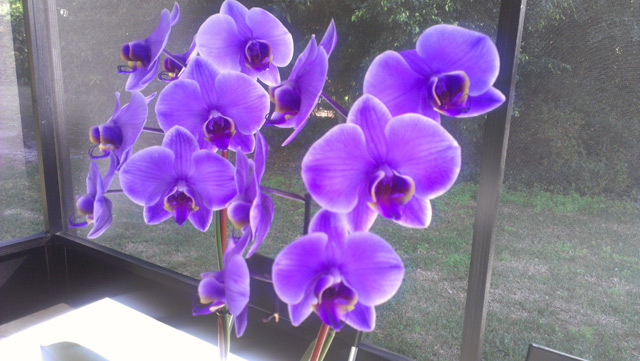
Many questions come to mind when purchasing residential window tinting for your home. A commonly asked concern is, will residential window film harm or even kill your plants? The short answer to this question is generally no if proper precautions are taken. Some weak plants can still die whether or not they are placed next to tinted windows. Use this guide to determine if your plants are at risk and find out how you can keep them healthy.
Dark, Leafy Plants
If your plants are dark and leafy, it is likely that they will survive, and even thrive, when you tint your windows to save energy in your home. Adequate light for these plants will continue to reach them through your residential window tinting, so you shouldn’t have to worry or even do anything differently to keep plants in good health. Do continue with your greenery’s regular regimen of care, however, to ensure they remain healthy and beautiful.
Less Water
Did you know that residential window tinting will save you on water costs as well as on energy bills? When you utilize tinting in your home, your plants are apt to stay moistened longer. You will be able to water them less as they become accustomed to their muted light source, and if you have problems with plants drying up, they should cease. It is important to remember that some plants may experience initial shock when first exposed to sunlight residential window film. This is normal. Continue care as usual and keep an eye on plants for a few days as they recover.
Improved Plant Health
In some instances, plants flourish better than ever before after you install residential window tinting. This can be due to the continued moisture they receive with less sunlight drying them out. It can also be due to a plant being a low-light thriving organism that you simply didn’t realize needed less light to begin with. Many people who purchase residential window film consider improved plant health a bonus to the other effects that window tinting offers to their home and budget.
Trial and Error
There will always be some fussy types of plants that do not do well with change at all. If you already grow high maintenance flowers in your home, you may already be aware of what they require. You can also test them using trial and error. Place a plant in an area with less sunlight for a few days to see how it fares without the constant heat and light. If it experiences shock but recovers in a few days as a typical plant might, or it simply remains as strong and vibrant as usual, it should be fine with residential window tinting. If the plant doesn’t perk up, it may not live well with window tinting.
When you decide to purchase residential window tinting for your home, you can usually rest assured that your plants will continue to thrive in their new environment. Like any organism, they simply may need an adjustment period. You may find that the benefits the tinting provides you and your home may extend to your plants as well.






Comments are closed.